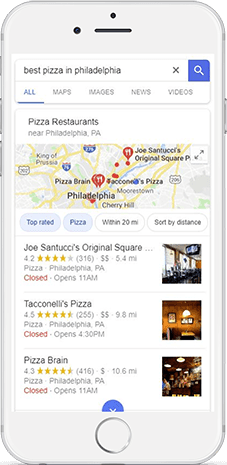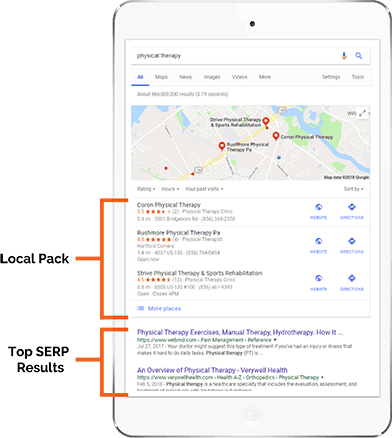Events in a corporate environment are often staged to communicate company strategy, change internal company behavior, launch a product or service, motivate, train or reward staff, or influence the external behavior of customers towards the brand.
In many instances, they bring company employees together, support wider marketing or sales initiatives, incentivize team achievements, or entertain senior leaders, get the most professionaal assistance from Trademark event production company.
What is corporate event planning?
Yet, corporate event planning goes beyond meeting planning. Although conferences and meetings may form the lion’s share of the workload, other events you may be asked to organize include corporate hospitality, client entertaining, conventions, exhibitions, and employees events—such as incentive travel reward programs, team building, motivational events, receptions, parties, and charity fundraising days.
Planning and executing a successful corporate event is no simple task. It’s typically a months-long process consisting of several stages and a variety of organizational steps.
To help you navigate the business of corporate event planning, here is everything you need to know:
- Types of Corporate Events
- Event budget
- Event objective
- Venue sourcing
- Event marketing
- Attendee engagement
- Corporate event planning checklist
Types of corporate events
As outlined above, corporate events can range from company conferences and internal training seminars to team away-days and client hospitality. When planning for any type of corporate event therefore, it’s best to assess them in terms of their size.
Micro events (otherwise known as ‘simple events’) are planned for up to 100 delegates and often take the form of meetings or more intimate training sessions.
The planning requirements for these micro-events may simply involve a room booking, presentation facilities, break-out refreshments, and registration. However, referring to them as ‘simple events’ can be misleading, as an away-day or hospitality for 50 senior managers can be as complicated as planning a conference for 500 attendees.
Small events are classed as between 100 and 250 delegates. They could be seminars, training days or departmental conferences.
Planners may need to manage a main stage itinerary and several break-out sessions, along with lunch, refreshments, audio-visual facilities, online registration, and transport.
Midsize events rely more on technology. They could be company-wide conferences for up to 1,000 delegates or leadership summits for important client customers to meet with senior leaders.
A branded website, pre-event communications, and an event mobile app should all form part of the budgetary considerations. Delegates may require hotel accommodation, plus transport which takes attendees to and from the venue. While a pre- or post-event reception or evening entertainment may be required as part of a complex multi-stream conference itinerary.
Large-scale events often require enterprise technology tools to manage elements such as hotel room bookings, delegate flights, budgets, and online registration.
These may be multi-day events so you could need offsite activities, dinners, partner programs, an awards ceremony or other complex itinerary planning.
Staffing, catering, registration, speaker and delegate management will all need to be carefully planned at scale. Conventions, for example, can attract anything up to around 10,000 attendees and can last a few days.
Event budget
The amount of available budget can impact every aspect of corporate event planning, from the choice of venue and speakers to the levels of catering, entertainment, technology, and staffing.
Decide if your budget has outgoings only, or will you be able to supplement it with income from exhibitors, sponsors or other forms of external revenue?
Has this event happened in the past? If so, use the previous budget to establish a baseline but ensure that inflation and evolving needs are taking into consideration.
Figures from past budgets are useful in providing a clearer picture of how much certain suppliers will charge. Use these to ensure you are not being over-charged when you reach out to suppliers for initial quotes.
Every event budget, however, needs built-in flexibility. Unanticipated expenditure is common and supplier costs are often provided as estimates, rather than fixed prices, so it’s vital that an overall budget is managed accordingly, and a contingency fund is in place.
Once you’ve sourced supplier costings, make a comprehensive list of all the budget line items in the event lifecycle, including venue hire, AV, food, and beverage, accommodation and travel, speaker fees, staffing costs, marketing and service fees.
For larger or more complex budget planning, look into corporate event management software suites, which include a dedicated event budget management tool. This will ensure accurate collection of your budgetary information, help you track expenses easily, generate budget reports, and demonstrate the ROI of your event.
Event objective
‘What is the event’s objective?’ This should be the first question you ask when a corporate event is requested. By gaining a deep understanding of the deliverables that key stakeholders are hoping to achieve, it’ll allow you to plan more effectively and communicate your ideas in a language your bosses will understand.
Once you’ve understood whether the event’s aim is, for example, to build brand awareness, communicate business strategy, reward and motivate, or launch a new product or service, you can then set goals, put the right metrics in place to track results, and determine who the attendees will be, along with their expectations.
When you have well-defined goals and objectives for your event, planning, promoting, and sticking to your budget all become much easier.
Event objectives should be SMART
- Specific: What is the desired outcome and when does it need to be achieved by?
- Measurable: Return on Investment or Return on Objectives… or both?
- Achievable: Ensure that the event objective is something that can actually be achieved otherwise senior leaders will consider it a failure.
- Relevant: The overall objective needs to remain something that relates back to the company’s goals throughout the entire planning process.
- Timebound: Plan for the event objective to have been achieved between two time periods. This may require subsequent training seminars or a follow-up event to assess the outcomes of the first.
Venue sourcing

The event’s objectives may also determine your choice of venue. If stakeholders are looking to leave a lasting impression on valued or prospective clients, for example, the venue will need to play its part and deliver a memorable wow factor.
Other factors that will influence your venue choice include budget, capacity, location, availability, and logistics. Having a clear understanding of these event requirements will allow you to shortlist a number of venues, send out requests for written proposals (RFPs) and arrange site visits.
Some venues offer seasonal pricing, so the hire cost may be lower during certain times of the year. Find out what the costs are for your venue of choice on your desired date. If your dates are flexible, you may be able to secure a better deal at your preferred venue.
If your event has a short-lead time, keep an eye out for last-minute venue offers as there are often great deals to be found. If you’re planning an event that’s a long way off, consider those venues undergoing refurbishment or not yet opened. They’ll be eager to secure your business and may be able to negotiate more favorably.
Three steps to venue sourcing
Step One: Find Venues
- Know the meeting objectives and requirements. By determining these at the outset, you’ll decrease the search process.
- Take into account feedback from attendees. Is this an annual event? If attendees ranked the venue from the previous year poorly, look at the feedback to pick a venue that will resonate better.
- Don’t feel alone. Reach out to your team, or others that have a stake in the event to brainstorm what factors are most important.
Step Two: Write the perfect RFP
- You already know general objectives and requirements – now define your purpose. Make it clear what this event requires and hopes to achieve.
- Get detailed. Give as much information about the event as you can.
- No one likes to discuss money, but you need to share your budget requirements. The venue is one of the largest costs of an event and can make or break your budget.
- Make your deadlines clear. Give a date and time that provide venues enough time to respond.
- Don’t start from scratch. Pull a template the internet.
- Be ready to answer any questions venues may have about the proposal or event.
Step Three: Send and evaluate proposals
- Using a venue sourcing tool, you can search and filter venues and send one RFP to multiple venues at once.
- Assess proposals via the chosen venue sourcing tool or by manually importing data into a spreadsheet
- Create a list of any factors that are less concrete – the qualitative factors.
- Pay close attention to meeting rooms – do the sizes and layouts make sense for your event?
- Compare how responsive and helpful the venues are to help figure out how helpful they’ll be if you choose them.




 Keyword Intent in Local Search
Keyword Intent in Local Search